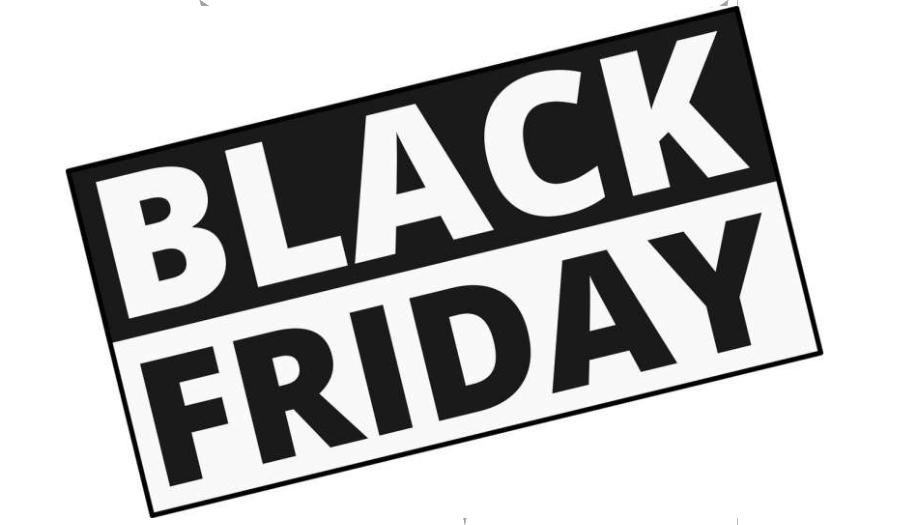(AP) – What do you get when you cross Black Friday deals with a continuing pandemic, supply chain disruptions and inflation?
Answer: a very messy version of the biggest discount day of the year, which happens annually on the day after Thanksgiving. This year, that’s Nov. 26 .
Here are five predictions from retail experts about Black Friday 2021 — plus, how you can navigate the upcoming sales.
1. SUPPLY CHAINS WILL BE STRETCHED
Supply chain complications due to the pandemic have caused delays or shortages of items as varied as toys, furniture and books. Companies may have to pivot their Black Friday selling strategies as a result.
“Retailers might focus on specific items rather than trying to have a huge range of everything,” says Mathew Isaac, professor of marketing at Seattle University.
As stores focus on getting the most in-demand items on their shelves, don’t expect them to carry as many sizes, styles or variations of everything else, he adds.
This outcome could be a big change from the 50-page Black Friday advertisements we’ve seen from big-box retailers in the past.
2. ONLINE SALES WILL OUTPACE IN-STORE SALES
Black Friday has been trending toward an online shopping day rather than an in-person event. That shift will only continue this year.
“People are definitely going to be interested in Black Friday and excited about it, but the bulk of the activity is going to be online,” says Donna Hoffman , professor of marketing at the George Washington School of Business in Washington, D.C. “That’s my prediction.”
Shopping from home allows consumers to avoid crowds and stay safe during the pandemic. It’s also conducive to bargain hunting and price comparison, offering a low-stress way to browse multiple stores at the same time in pursuit of the best price.
“I think this year, compared to last year, there’s even more of a focus on budget,” Hoffman adds.
Those who do set foot in stores won’t necessarily do so because they found a better deal there. Instead, Hoffman anticipates shoppers will go to stores if they’re unable to find what they wanted in stock online. But Hoffman predicts that small businesses will attract in-person shoppers, particularly if that business has a sustainable mission.
3. SHOPPERS WILL GET MORE SLEEP
That shift to online shopping could have another side effect — more sleep.
Because of COVID-19, stores no longer packed shoppers in during the “wee hours” of Black Friday last year, Sheri Lambert , assistant professor of marketing at Temple University in Philadelphia, said by email.
Many stores abandoned their late-night Thanksgiving hours last year. And major retailers have already announced plans to stay closed this Thanksgiving Day, as well.
After the changes that took hold last year, Lambert doesn’t foresee the “mad rush of in-person shopping” returning anytime soon. So shoppers can sit back and make purchases from their couch (or bed) instead of having to camp out on the sidewalk in front of their local Target or Best Buy.
4. HOLIDAY SHOPPING WILL BE A MARATHON
Black Friday sale events will start early and last for a long time, according to Lambert. This “marathon” approach is similar to what happened last year, when deals were offered throughout the entire month of November.
But unlike Black Friday events before the pandemic, spread-out savings opportunities don’t mean shoppers should wait to shop in anticipation of better deals to come. Lambert said retailers are starting to communicate to consumers that they should start buying for the holiday season now, in light of global shipping bottlenecks.
“My number one tip: Shop now,” Lambert said. “Order that special gift for that special someone today. And even then, anticipate and expect the worst, but hope for the best.”
You might not be guaranteed to receive your purchases before Christmas.
5. PERSUASION WILL PERSIST
Finally, it wouldn’t be Black Friday without a little bit of pressure. Remember, retailers want you to buy that shiny new whatever-it-might-be, even if you don’t necessarily need it.
Isaac says retailers make a substantial percentage of their yearly revenues during this 75- to 90-day period, “so they’re going to do everything they can to try to get you to shop, as long as they have the product.”
If you choose to shop during this year’s unique version of Black Friday, traditional shopping advice will still apply.
Stay alert to persuasion tactics, like good deals that reel you in and tempt you to act on other, not-so-good deals. Aim to stick to a physical or mental list of things you actually need. And make a budget before you buy a single thing.









